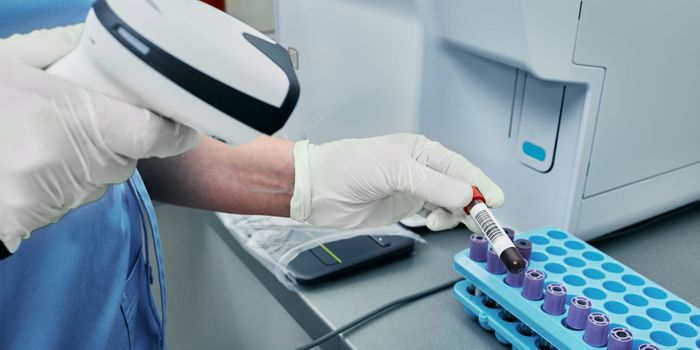Sepsis Test Could be a Lifesaver in Emergency Rooms
Our immune systems can respond swiftly to an infection. But when the immune response is excessive or uncontrolled, it can cause a life-threatening condition known as sepsis. Any infection can lead to sepsis, which often starts before a patient is hospitalized. Sepsis can cause organ damage, failure, and death if untreated. According to the Centers for Disease Control and Prevention, about 350,000 people are thought to die of sepsis every year in the United States alone, and timely diagnosis is crucial to preventing the worst outcomes.
There is no definitive diagnostic test for sepsis, although patients who are at higher risk, such as older adults or individuals with chronic diseases, can be screened if they have to go to the hospital for an infection. Doctors have to rely on their best judgement when evaluating patients for the condition.
A new study has demonstrated that a blood test for sepsis called IntelliSep can save lives. This test evaluates changes in a person's white blood cells to determine if they are at high risk of sepsis. The findings were reported in Critical Care Explorations.
A health economist was also a part of the study to show that the test can save money in hospital emergency departments.
"One of the tools that health economists use frequently is decision modeling," said senior study author Christopher Hollenbeak, professor of health policy and administration in the Penn State College of Health and Human Development. "In decision modeling, we use a mathematical model to calculate the likely outcome and cost of a specific decision. In this case, we evaluated the cost and benefit of using the IntelliSep test on patients who are suspected to have sepsis."
The information provided by the assessment can show stakeholders how much it a particular innovation will cost to introduce, and what results might be expected from such an investment, explained Hollenbeak. This can help health systems and clinicians to decide which options to use in when evaluating and caring for patients.
Hollenbeak noted that these types of assessments are commonly used after the development of a new drug, tests, or procedure. There may be uncertainty with new and relatively untested methods, so the expected benefits can be taken into account when deciding whether or not to implement them.
In this work, IntelliSep was compared to a test for procalcitonin that is sometimes used as a biomarker of sepsis, but can be unreliable. In the clinic, healthcare providers tend to use their judgment because it can be more accurate than procalcitonin, but it was the only available test that IntelliSep could be compared to.
The research showed that IntelliSep was better than procalcitonin as a sepsis test, and that IntelliSep could help 95 percent of patients with sepsis survive their condition. The treatment cost and survival rate were better than using procalcitonin levels. The savings in the emergency room is generated with a more accurate diagnosis, noted Hollenbeak. Undiagnosed sepsis cases can dramatically increase treatment costs and the risk of death.
IntelliSep is not a replacement for quality care in the clinic, noted Hollenbeak, but it could be a very helpful tool for treatment providers.
"Admitting someone to the hospital is a serious decision," Hollenbeak said. "It inconveniences the patient and costs a lot of money. In medical care, all doctors have to make decisions in the face of uncertainty, so they always need the best information possible. If [ER] doctors can get information quickly about the likelihood that someone has sepsis, that is going to be very useful to them."
Sources: Pennsylvania State University, Critical Care Explorations









